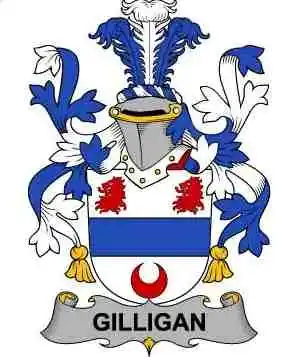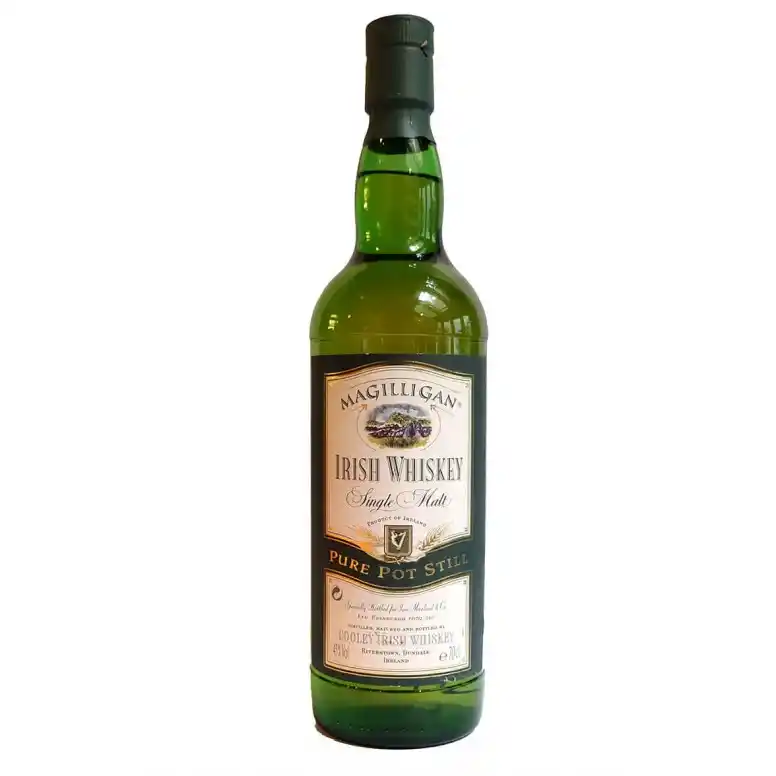MacGilligan/Magilligan Genealogy
Magilligan is a peninsula at the mouth of Lough Foyle in County Londonderry, Northern Ireland. It is an extensive 79,000-acre (32,000-hectare) coastal site, part military firing range and part nature reserve, and is home to HM Prison Magilligan. The tip of the peninsula, which lies less than a mile from Greencastle in County Donegal, is known as Magilligan Point. The two are linked by a ferry service.
McGilligan: From Mac Giollagáin see Gilligan . This was an ecclesiastical family of north-west County Derry where a parish is named after them. There may have been some confusion with McLagan .
Source: The Oxford Dictionary of Family Names in Britain and Ireland, 2016
The surname of McGILLIGAN was derived from the Gaelic O’Giollagain. (This name was probably derived from Giolla a name meaning lad). They were a leading sept of County Derry, sometimes abbreviated to Gillan. The district in north Derry, adjacent to Lough Foyle is called Magilligan’s Strand. In 1608 in an important official despatch it mentions the MacGILLIGANS as one of the chief septs of County Coleraine (Derry). By the middle of the 17th century the Mac was widely discarded.
The name is also spelt MacGILLIGAN, O’GILLAN, GILLEN, O’GALLIGAN and Mac ELGUNN. Ireland was one of the earliest countries to evolve a system of hereditary surnames. They came into being fairly generally in the 11th century, and indeed a few were formed before the year 1000. The name is also spelt Mac Gilligan. In the latter part of the sixteenth century, an influx of settlers arrived under the patronage of Elizabeth I of England, and colonized the country beyond the ‘Pale’, the area around Dublin that was the only part firmly under English control.
At the same time , groups of Presbyterian settlers were encouraged to migrate from Scotland to Ulster, thus establishing the distinctively Scottish surnames of Ulster. During the long centuries of English domination, Irish surnames were crudely Anglicized either phonetically or by translation. In the 19th century, political repression and famine combined to force many Irish people to seek other countries in which to live. Large numbers emigrated to the United States, where strong emotional ties to Ireland are still preserved in many families, while others found themselves transported, willingly or otherwise, to Australia, often after having first tried to make a living in England.
Irish surnames are now very widely dispersed, and are common in England as well as in Ireland, the United States and Australia. Peter GALLIGAN (1793-1860) a County Cavan schoolmaster, was a great collector of manuscripts; these are now preserved in the Royal Irish Academy, University College Dublin and the Belfast Muncipal Library. The lion depicted in the arms is the noblest of all wild beasts which is made to be the emblem of strength and valour, and is on that account the most frequently borne in Coat-Armour.
Magilligan Point Northern Ireland
MAGILLIGAN (0 individuals)
Macgilligan Genealogy (from Greek: γενεαλογία genealogia from γενεά genea, “generation” and λόγος logos, “knowledge”), also known as family history, is the study of families and the tracing of their lineages and history.

